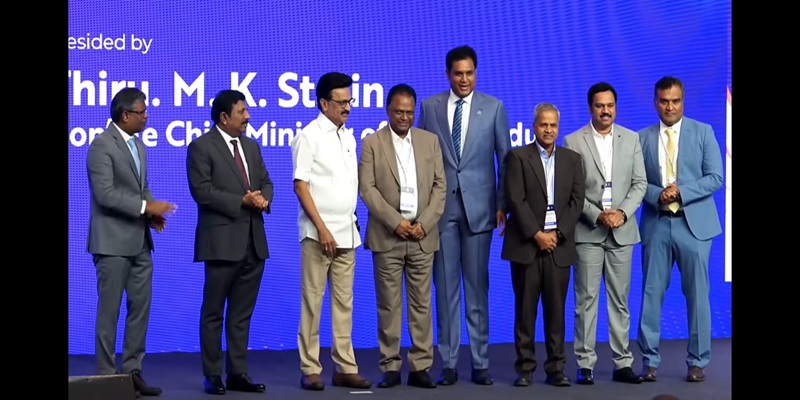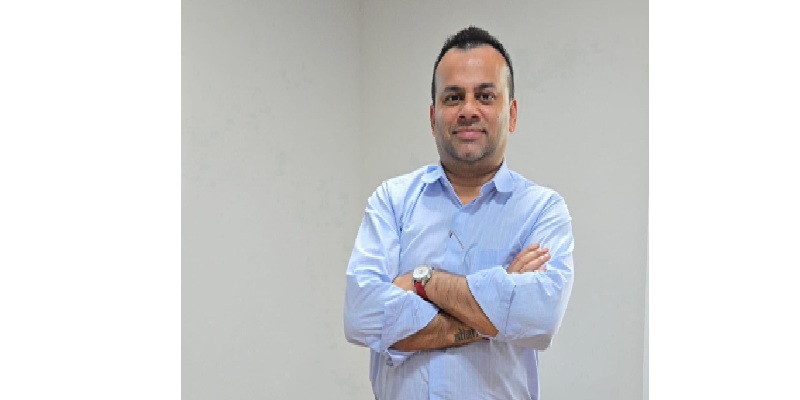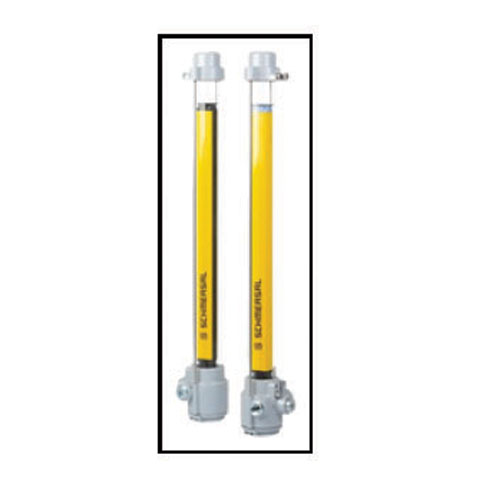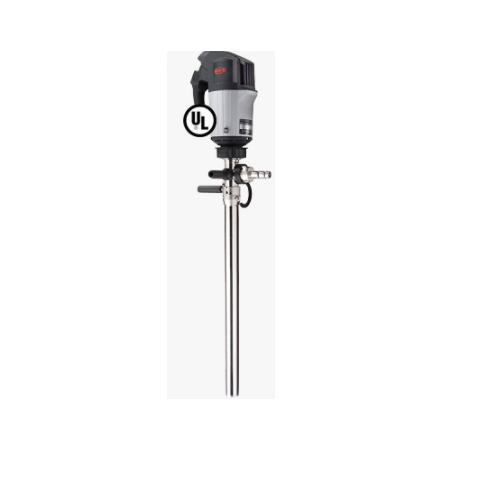Schedule a Call Back
Indian manufacturing industry is going through great changes
 Interviews
Interviews- Jan 01,17

Sudesh Rokade, President, Arhan Japan Kabushiki Kaisha, in conversation with Industrial Products Finder. Excerpts...
What is the Arhan model of business with Japanese machines and technologies? How adaptable are these in the Indian context?
Arhan has developed a concept of providing customised solutions, proven manufacturing concepts in Japanese industries for improving productivity, quality with automated systems. Our solutions consist of automated cell systems, compact line planning of machines from different manufacturers suitable for respective process. Arhan has access to many Japanese machine manufacturers, turnkey solutions, work holding solutions providers. Our products cover a wide range of machines in metal cutting, super precision machining, all types of grinding machines, auto inspection/measuring, forging machines, die manufacturers, automation manufacturers, machine peripherals, work holding solutions, and special purpose machines. We allow our customers access to a wide range of manufacturers for most suitable automated and cost effective manufacturing solutions.
The Indian manufacturing industry is going through great changes for delivering world-class quality, high productivity, better price and most important consistent quality. We can offer solutions where quality will be linked to line process and not just human dependent. Indian manufacturers are now looking for new manufacturing techniques, next generation solutions to have more productivity in minimum space, reduction in manpower, built-in quality systems, most important consistent quality and edge over competitors than conventional production systems.
What is the Arhan USP, especially when Japanese machine tool companies are already present in India?
Japanese companies in India sell their conventional machines and machine dealers only sell the machines handled by them. Conventional machine tool manufacturers try to present how their machines are suitable and economical; however they do not present manufacturing methods adopted in Japan for cost effective and high quality production. Conventional major machine manufacturers do not focus on automated systems as their business policy is to sell more number of conventional machines. It is necessary to spend more time with Indian manufacturers for giving specialised solutions and they can’t give this.
Arhan conducts a study of customers’ requirements and checks the most suitable, proven automated manufacturing solutions for similar parts manufacturing in Japan. Some Japanese machine manufacturers have sales & service set-up in India but mostly they supply conventional machines. There are many good Japanese companies who do not have set-up in India, and their machines and automated systems are widely used by Japanese automotive OEMs, and Tier 1 and Tier 2 parts manufacturers. Arhan is focusing on automated cell systems, turnkey systems under the ‘one supplier for various machining requirements’ concept. We have also made contracts with companies specialised in automation. So our customers do not have to depend and discuss with various machine suppliers for good solutions. We take our customers to Japan and have technical meetings, show them solutions working in the field and have proven reliable concepts in India to make their production set-up world-class and more profitable. Arhan has own set-up in India and Japan, this gives us added advantage to closely work with Indian customers as well as Japanese machine, automation manufacturers.
Arhan provides fully automated manufacturing solutions on turnkey basis. What are the customer benefits?
Arhan understands customer requirements and works out automated solutions based on customer’s budget, infrastructure and technical expertise after detailed discussions with Japanese manufacturers. We suggest automated cell systems as well as automated parts transfer from one manufacture’s machine to another.
Our automated systems installations have benefited our customers to improve productivity, achieve consistent in-built quality, continuous unattended production during meal and rest breaks. Our customers have confirmed that these solutions are more efficient than what they used previously with local low cost automation. In fact they removed old automation from production lines and adopted our solutions. Some customers improved profitability over 100% due to minimum downtime, minimum rejection and machine maintenance costs, and higher productivity. This gives a leading edge over competitors.
Customers have now understood that initial investment costs alone do not decide cost/piece but more profitability comes with good production methods and reliable systems.
With businesses now facing extreme competitiveness, even companies are looking for optimised solutions. How do these work in practice?
Now customers are asking for imported parts substitute solutions as well as world standard production set-up to have competitive advantage. Just purchasing a high end, branded Japanese machine does not solve the purpose. Customers can boast that they are using top brand machines to their customers, but these are not necessarily optimised solutions that confer specific business advantages on them. Automotive as well as non-automotive parts manufacturers now need to think out of the box to have solutions which are proven in Japan for all types of advantages. Success stories of Japanese industries can be repeated in India.
The concept of working with conventional machine tools in isolation is changing in favour of flexible manufacturing cells with multitasking abilities. Easily said than done?
Nowadays Indian industries are facing new challenges: shortage of space, need to meet higher productivity in same available space, shortage of manpower and skilled operators, higher parts accuracy requirements, stringent quality norms, parts warrantee, et al. So just adding a number of machines to the production line does not solve the purpose when the production demand is increased. Just adding machines increases various problems and leads to people dependent productivity.
When we set up a flexible manufacturing cell with minimum set-up change and multi-tasking production concept it helps customers to have the real advantage. When a cell of 2 complex operations is set, it is possible to have both machines for same part machining or separate parts machining with complete flexibility. This helps customers for proper production planning.
It is the age of Industry 4.0 now. Are your solutions compatible with this concept?
Today’s concept is Smart Factory with automation, traceability, auto inspection, data storage. We have given solutions where inspection or gauging data can be stored in media or transferred to computer systems. Computer customised software can calculate process capability, statistical analysis, understand material or process problems. Customers can store such data for longer time and also submit it to their customers. Auto correction systems through automation also enable high quality parts production.
Smart factory with minimum machines and smart people is effective way to increase profitability and business competitiveness.
Arhan actually takes ownership for the solutions it offers. Do your principals offer full support to this?
Arhan has taken ownership for the solutions for meeting customers’ requirements in Quality, Tact Time, Automation reliability, Installation and Service Support, Quicker Manufacturer Support.
Our principles are offering full support by different ways: better price over Japanese market prices, simple automation, quicker deliveries, customer trainings in Japan and in India, proper documentation, proving parts in Japan before machine shipment to India, tooling solutions to reduce cycle time and so on.
What is the Arhan experience of working with Indian companies? Are they more receptive to this? Or are there apprehensions?
Some of our customers informed us that they tried to adopt local or conventional automation until 2013-14 due to budget constraints, could not achieve the desired results and after seeing the success of our provided solutions, they are becoming more confident and are requesting further advanced solutions to replace old machines in their plants. We feel educating customers for proven Japanese manufacturing technology is the best way to build their confidence and go for proper budget investments for long term higher profitability.
New generation businessmen who are frequently visiting other countries to see production methods are more convinced for new production methods. We are able to supply more economical Japanese automation than some other Japanese automation companies. This is benefitting our customers more.
In effect, is Arhan not advocating less use of machines by making more productive use of them?
We suggest having minimum machines in line with multiple stations working to have cost effective production with more productivity. If our machines and automation systems are developed for 24x7 working and unattended production during meal and rest breaks, then it gives more productivity.
Can you provide a couple of examples of how customers have benefited?
We have provided specialised machines and automation system for import substitute parts production. These parts cannot be produced with conventional machines. Our solutions have enabled our customers to increase profitability multiple times. They could have RoI in less than 2 years against initially planned 5 years. Dependence on international suppliers was eliminated.
Another example is of a major automotive manufacturer using branded equipment with automation but still unable to have 24 hours consistent productivity. Sometimes branded equipment manufacturers take automation from other suppliers. This automation system faced consistent troubles and the customer used to operate a large system manually. Our reliable solution helped them to get consistent productivity. With new solution productivity is almost doubled by reducing all idle time, load/unload time. System efficiency greatly increased.
Yet another of our solutions has replaced 8 manually operated grinding machines in a production line with just 2 twin-wheel head grinding machines. This twin-head large grinding wheel grinding machine cell is an innovative concept in India. This solution enabled great space savings, 8 operators were reduced to just 1 skilled operator to run the line. Now production will be consistent and each part will be measured on-line before delivering to the feed-out conveyor. The system ensures that 100% parts produced are within the required accuracy levels.
Related Stories

Calcom Vision Reports Record Q3 and 9M FY26 Revenue, Strong YoY Growth
Calcom Vision Limited posts highest-ever 9MFY26 revenue at Rs 150.3 crore, with robust growth across lighting and EMS segments.
Read more
Mahindra Expands Advanced R&D and Testing Facilities at Chennai MRV
Mahindra & Mahindra invests Rs 1,960 million to expand its Advanced R&D and testing facilities at Mahindra Research Valley, creating 2,000 new jobs and reinforcing Chennai as an innovation hub.
Read more
MIC Electronics Secures Rs 44.5 million Eastern Railway Orders
MIC Electronics Limited has received Rs 44.5 million LoAs from Eastern Railway, Howrah Division, for advanced Passenger Information and Communication Systems projects.
Read moreRelated Products

Amusement Park Equipment- White Water Ride
SICCO Engineering Works offers a amusement park equipment- white water ride.

Safe Signal Processing
Insys Electrical & Controls offers a wide range of
safe signal processing.

Nylon Coated Roller
Jekmin Industries offers a wide range of
nylon coated roller.











